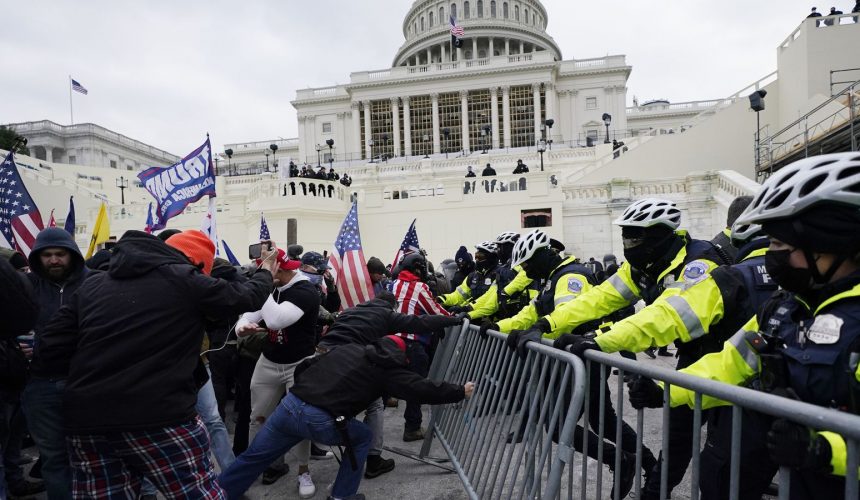Brand in Focus
The United States of America has long held itself up as a bastion of democracy, while fervently promoting democracy around the world. However, over the years, democracy – whether of ancient or of modern origins – has suffered political, economic, diplomatic, and military failures that greatly lessened its appeal.
With the victory of the Allies in World War I, the ancient systems of monarchy, aristocracy, and oligarchy ceased to be legitimate. The U.S. fought, at great cost, for democracy against fascism in Europe during World War II. Following the military defeat of Italy and Germany during the war, the newer alternative of fascism was likewise discredited, as was Soviet-style communism after the economic and political collapse of the Soviet Union in 1990–91. Similar failures contributed to the gradual disappearance of military dictatorships in Latin America in the 1980s and ’90s.
Today, the fight has come home, and America’s ideals of freedom, democracy, and justice for all are under open attack. America’s credentials as a democracy were glaringly discredited when President Donald Trump’s supporters recently breached the U.S. Capitol building in Washington after thousands of people descended on the city to protest against Joe Biden’s confirmation certification.
The scary and appalling images of the protests drew global condemnation as world leaders and governments expressed shock and outrage at the assault on the U.S. Capitol. German Chancellor Angela Merkel said she was furious and saddened by the event, adding that Trump shared blame for the event. Corroborating her denunciation, German Foreign Minister Heiko Mass called on Trump’s supporters to “stop trampling on democracy”.
Among the important voices that criticized the attack, British Prime Minister Boris Johnson, on Twitter, condemned it as disgraceful, saying, “The United States stands for democracy around the world and it is now vital that there should be a peaceful and orderly transfer of power”.
In a similar vein, other global leaders such as Israeli Prime Minister Benjamin Netanyahu, French President Emmanuel Macron, Canadian Prime Minister Justin Trudeau and Australian PM Scott Morri among others raised their voices in condemnation of the attack.
Joseph Borrell, the EU’s foreign policy chief condemned the attack in a tweet as an “assault on US democracy”, adding “in the eyes of the world, American democracy tonight appears under siege”. Calling the action an “assault on US democracy, its institutions and the rule of law”, he added: “This is not America.”
On their part, Russian officials pointed to the storming of the U.S. Capitol as evidence of America’s decline, with Konstantin Kosachyov, chairman of the Russian upper house’s foreign affairs committee, saying it showed US democracy was “limping on both feet”.
“The celebration of democracy has ended. It has, unfortunately, hit rock bottom, and I say this without a hint of gloating,” Kosachyov said in a post on Facebook. His counterpart in the lower house, Leonid Slutsky, said “the United States certainly cannot now impose electoral standards on other countries and claim to be the world’s ‘beacon of democracy’.”
Iranian President Hassan Rouhani said in a speech broadcast by state television that the chaos unleashed on the US Capitol “shows above all how fragile and vulnerable Western democracy is. “We saw that unfortunately the ground is fertile for populism, despite the advances in science and industry. I hope the whole world and the next occupants of the White House will learn from it.”
While the recent scenes of the Capitol attack have stunned many and led to bipartisan condemnations, the U.S. has seen a handful of other alarming incidents of violence at its Capitol. Perhaps most famously, just 14 years after the building opened, British forces tried to burn it down in 1814. The invaders looted the building first, and then set the southern and northern wings ablaze, incinerating the Library of Congress.
However, many believe President Trump had been encouraging his supporters to not accept the election results, to fight back, and some said America ought to have seen what happened at the Capitol coming.
Where does the recent attack leave American democracy as an iconic global brand? Is it possible to overcome the assault and its lingering negative connotation on the global image of America as a bastion of democracy?
The violence, among other fault lines, has aggressively put the U.S. on notice that its democracy contains serious faults and fissures, and that it should do everything it can to repair those faults over the next four years with the President-elect Joseph Biden administration.




Comment
No comments found.